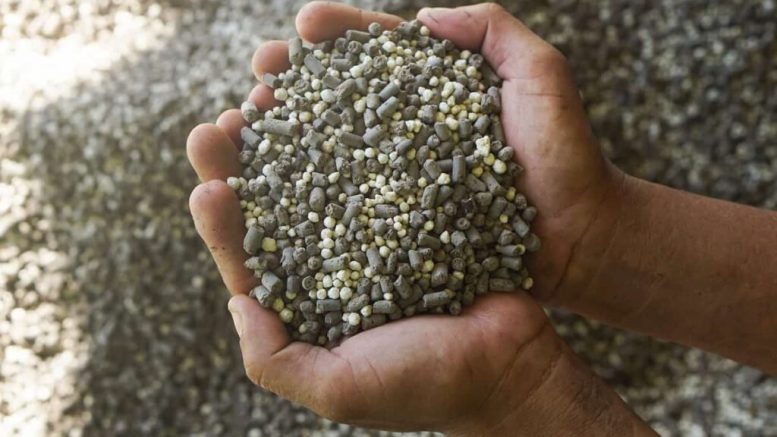“According to the National Fertilizer Plan, these technologies will be responsible for supplying approximately 30% of the entire demand for national NPK in the medium term…”
Giuliano Pauli is director of innovation at Superbac Biotechnology Solutions and advisor to the Brazilian Association of Plant Nutrition Technology Industries – Abisolo.
Pauli holds a M.Sc and a Ph.D degree in biotechnology from Escola Superior de Agricultura “Luiz de Queiroz” – USP.

Giuliano Pauli, director of innovation at Superbac
AgriBrasilis – What are bioinputs and how do they relate to the National Fertilizer Plan – NFP? What is the market growth for each type of bioinput?
Giuliano Pauli – Bioinputs are products used in agriculture that contain living organisms or substances derived from these organisms, such as microorganisms (bacteria, fungi and viruses). They have the function of controlling pests and diseases, improving soil fertility, increasing plant resistance to biotic and abiotic stresses, promoting crop growth, in addition to reducing the impacts associated with the exclusive use of chemical products.
The National Fertilizer Plan is a State policy that aims to reduce the exacerbated national dependence on the import of mineral fertilizers from other countries through five strategic guidelines:
- Modernize, reactivate and expand existing fertilizer plants and projects in Brazil;
- Promote competitive advantages in the national fertilizer production chain to improve the supply of the Brazilian market;
- Improve the business environment in Brazil to attract investments;
- Expand investments in RD&I and in the development of the fertilizer and plant nutrition chain in Brazil;
- Adequate the infrastructure for the integration of logistics centers and the viability of projects.
A recurring theme within these guidelines is the development and maturation of Emerging Chains (up-and-coming market segments) that include bioinputs and organomineral/organic fertilizer.
The evolution of this market has occurred consistently over the last 10 years, with average annual growth above 25-30% per year, conquering part of the market previously dominated by chemical solutions for plant protection and nutrition. Currently, the bioinput market represents approximately 5% of the total market, with an expectation of doubling its share within the next three to five years.
AgriBrasilis – You participated in the discussion on the NFP in the Chamber of Deputies (lower house of the National Congress of Brazil). What points were raised at the meeting? Who are the main actors involved in this discussion?
Giuliano Pauli – The discussion was an excellent opportunity to expose the ideas of all actors linked to the fertilizer market, from the Executive, the Legislative, Embrapa, the private sector and the main associations that represent the different segments of the fertilizer industry.
Among the various topics discussed, it is possible to highlight: tax equality for the manufacture and import of fertilizer, the importance of sustainability as a fundamental pillar of new projects, the competitiveness of natural gas, the relevance of the Emerging Chains maturation and the need to leverage investments in science and technology.
Another recurring theme during the event was the importance of governance in the coordination of the National Council of Fertilizers and Plant Nutrition – Confert, with the active participation of the government and the private sector, and the relevance of the teamwork carried out for the NFP to materialize into a state policy, with short, medium and long-term actions, and that considered all aspects that are relevant to the plant nutrition chain in Brazil.
AgriBrasilis – What is the strategic importance of Emerging Chains in the NFP? What are the goals for these chains?
Giuliano Pauli – The Emerging Chains represent some segments in Brazil that already are and others that could be a reference for the whole world. According to the National Fertilizer Plan, these technologies will be responsible for supplying approximately 30% of the entire demand for national NPK in the medium term.
The strengthening of the bioinput and organomineral fertilizer Emerging Chains also contributes to the development of the national industry, stimulating domestic production, with the creation of jobs and business opportunities. This can boost the local economy, increase the competitiveness of the agricultural sector and promote innovation and technological development in areas where Brazil has competitive advantages.
AgriBrasilis – What is the importance of soil management practices in this context?
Giuliano Pauli – So far, knowledge of the soil has focused mainly on its chemical characteristics. However, a more modern approach recognizes the importance of soil physical and biological characteristics in equal measure.
Soil management practices, such as the use of bioinputs and organomineral fertilizers, play a fundamental role in improving the availability and cycling of these nutrients in the agricultural system. In addition, these practices contribute to the resilience of plants in the face of the various biotic and abiotic stresses that occur during the farming cycle.
Therefore, considering the soil as the main asset of the farmer and adopting integrated management practices, that take into account its physical, chemical and biological characteristics, it is essential to promote an integrated agriculture that uses all the technologies available in the market, supported by science.
AgriBrasilis – You said that we should not think of unique solutions for plant nutrition and protection. How to address those issues?
Giuliano Pauli – Considering the extent and complexity of Brazilian agriculture, it is unrealistic to believe that isolated technologies will be able to meet all the demands of the sector.
Integrated management is the most appropriate approach for plant protection and nutrition. It is extremely important to contemplate the use of bioinputs whenever possible, combining them with chemical products only when necessary, in order to establish an integration that promotes the necessary synergy for Brazilian agriculture to continue as a reference in efficiency and sustainability.
READ MORE:

